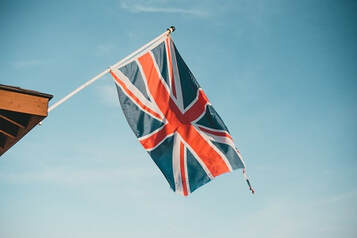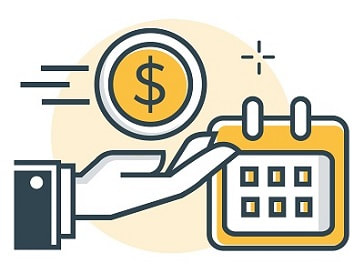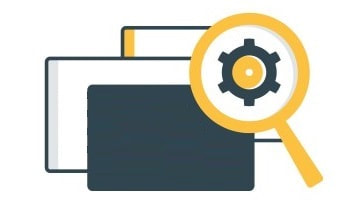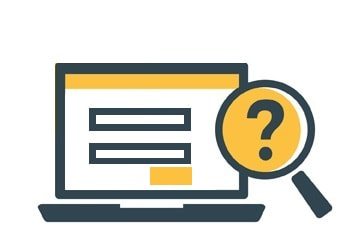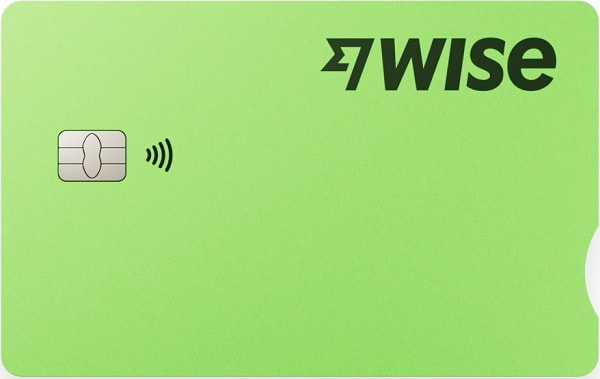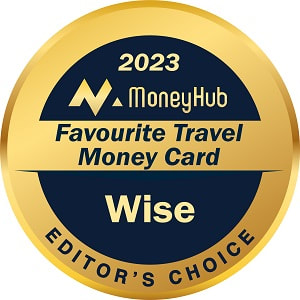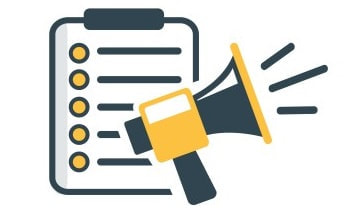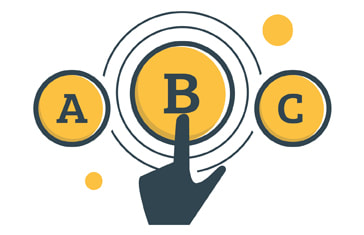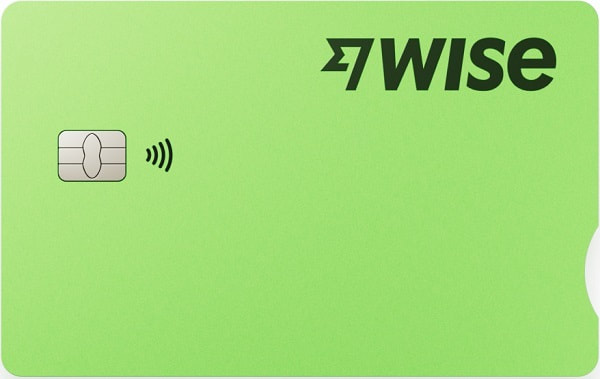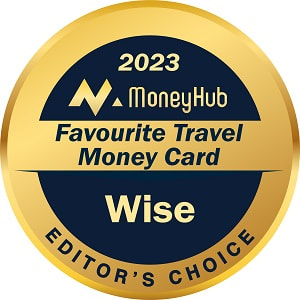UK Travel Money - Best Options for Kiwis 2024
Our guide outlines everything you need to know about spending money in the UK, specifically cash vs debit and credit cards vs travel money cards.
Updated 3 January 2024
Summary:
Our guide explains everything you need to know to make travelling in the UK a cost-effective experience. We cover:
Advertising disclosure: We may receive a payment if you sign up for a card via MoneyHub - please read our advertising policy for more details.
Related guide: The Best Travel Money Cards
- The UK is a popular year-round with New Zealanders, but the costs of visiting can be high, especially for those staying in London. While the NZD is stronger against the Pound, costs have increased overall and everyday meals out and transport can become very expensive.
- Most British pay by card and businesses big and small accept cards - using cash is rare, especially after the pandemic, and some businesses are cashless per this September 2023 BBC article.
- The official currency of the UK is the British Pound, often represented as GBP or with the "£" symbol locally. Over the past year, the exchange rate for NZD to GBP has seen some fluctuations, but on average, 1 NZD hovers between 0.45 and 0.55 GBP. As the NZD weakens, a trip to the UK gets more expensive, and vice versa.
- Most New Zealanders will pre-book and/or pre-pay hotels, AirBnB and car rental, but on-the-ground costs can be a lot more than prepaid costs, especially if you're a family or group moving around together. For this reason, having the most economical and convenient payment method for the UK makes every dollar go further.
- We are confident in suggesting that the UK is almost completely cashless, and that cards are widely preferred as the method of payment. Any card-accepting business will accept Mastercard, Visa and (in most cases) AMEX.
Our guide explains everything you need to know to make travelling in the UK a cost-effective experience. We cover:
- Option 1 - Using Cash in the UK
- Option 2 - Using NZ-Issued Debit and Credit Cards in the UK
- Option 3 - Using Travel Money Cards (Including the Wise Debit Card) in the UK
- Must-Know Facts for Using Money in the UK
- NZD to GBP Conversion and Spending GBP - Frequently Asked Questions
- Our Conclusion
Advertising disclosure: We may receive a payment if you sign up for a card via MoneyHub - please read our advertising policy for more details.
Related guide: The Best Travel Money Cards
Option 1 - Using Cash in the UK
If you want physical GBP notes before leaving New Zealand for the UK, you have a couple of options:
Getting Pounds (in cash) from an NZ Bank: Most NZ banks have stopped offering FX cash services; Westpac is currently the only provider, but you'll need to be an existing Westpac customer to swap NZD for Pounds.
Getting Pounds Cash from a Bureau de Change/Forex Booth:
The primary operators are travel money booths like Travelex and No1 Currency. However, the FX rates are well below mid-market rates per our video research summary below, meaning you'll get less GBP for your NZD than you otherwise would if you used Westpac's services or withdrew GBP from an ATM once you're in the UK.
Getting GBP Cash When You Arrive in the UK:
If you want to have physical British Pounds on hand for your arrival, there are ATMs in the arrivals areas and arrival concourses of all British Airports, whether it be Heathrow, Stansted, Manchester, Edinburgh or any other city. There are two types of ATMs in the UK: free and pay-to-use. Most ATMs are free; you'll see a message on pay-to-use ATMs such as "this ATM charges £1.99 to withdraw money". However, some NZ banks charge overseas ATM withdrawal fees, which can add $5 or $6 to the amount you withdraw.
Our View: We've found that the FX rates at Forex booths aren't as favourable as those offered by Westpac (for GBP and other currencies). Furthermore, Westpac's GBP rates aren't as good as those from Wise. In practical terms, if you use Wise to withdraw money from an ATM in the UK, you'll get around an extra £1 for every NZ$100 you take out (compared to changing it with the FX booths), thanks to Wise's superior rates and lower fees.
Bonus: The Wise Debit Card offers withdrawals of up to NZ$350 per month without charging a transaction fee, meaning you can withdraw up to around £170 in cash without paying FX transaction fees (after NZ$350, it's a flat 1.75% fee).
Video Comparison: In the video below, MoneyHub Founder Christopher Walsh compares the NZD:GBP rates offered by forex kiosks Travelex and No1 Currency, and how they compare to Wise and bank cards that use Visa and Mastercard:
Getting Pounds (in cash) from an NZ Bank: Most NZ banks have stopped offering FX cash services; Westpac is currently the only provider, but you'll need to be an existing Westpac customer to swap NZD for Pounds.
Getting Pounds Cash from a Bureau de Change/Forex Booth:
The primary operators are travel money booths like Travelex and No1 Currency. However, the FX rates are well below mid-market rates per our video research summary below, meaning you'll get less GBP for your NZD than you otherwise would if you used Westpac's services or withdrew GBP from an ATM once you're in the UK.
Getting GBP Cash When You Arrive in the UK:
If you want to have physical British Pounds on hand for your arrival, there are ATMs in the arrivals areas and arrival concourses of all British Airports, whether it be Heathrow, Stansted, Manchester, Edinburgh or any other city. There are two types of ATMs in the UK: free and pay-to-use. Most ATMs are free; you'll see a message on pay-to-use ATMs such as "this ATM charges £1.99 to withdraw money". However, some NZ banks charge overseas ATM withdrawal fees, which can add $5 or $6 to the amount you withdraw.
Our View: We've found that the FX rates at Forex booths aren't as favourable as those offered by Westpac (for GBP and other currencies). Furthermore, Westpac's GBP rates aren't as good as those from Wise. In practical terms, if you use Wise to withdraw money from an ATM in the UK, you'll get around an extra £1 for every NZ$100 you take out (compared to changing it with the FX booths), thanks to Wise's superior rates and lower fees.
Bonus: The Wise Debit Card offers withdrawals of up to NZ$350 per month without charging a transaction fee, meaning you can withdraw up to around £170 in cash without paying FX transaction fees (after NZ$350, it's a flat 1.75% fee).
Video Comparison: In the video below, MoneyHub Founder Christopher Walsh compares the NZD:GBP rates offered by forex kiosks Travelex and No1 Currency, and how they compare to Wise and bank cards that use Visa and Mastercard:
Using GBP Cash - Pros and Cons
Pros:
Cons:
- Universal Acceptance: Cash is king no matter where you go in the UK. However, there is a shift away from cash, with debit and credit cards, alongside Apple Pay and Google Pay, becoming the most commonly used throughout the UK.
- Immediate Transactions: There's no risk of card machine issues, declined transactions or fraud on your card.
Cons:
- Safety Concerns: Carrying large amounts poses a risk, especially in crowded areas, and London is known for petty theft. However, you can always leave a portion of your Pounds in a hotel room safe or keep it somewhere secure on you.
- Airport Exchange Woes: While convenient, exchanging NZD to Pounds at the airport can be costly if you use a high-fee debit card at an ATM or get a bad rate at the Forex kiosk in New Zealand or in the UK. This is because rates are often marked up, and there might be hidden commission fees, reducing the amount of GBP you receive for every NZD you change. If you're visiting London, Thomas Exchange is one of the better forex booths (with multiple locations around London), although you'll be taking a 5-10% reduction by exchanging NZD compared to what an ATM will offer.
If I have spare Pounds on the last day I'm in the UK, what should I do with them?
- Spare notes and coins have a habit of gathering dust back in New Zealand, and it may be some time before you visit the UK again. The best way to avoid having leftover currency is to spend the notes and coins on your last day; many people make a part payment alongside their card to settle a final bill, for example a lunch or dinner, before they fly out. Or you can put the cash towards the hotel bill if you're settling the bill at the end of your stay.
- You can convert them back to NZD when you return to New Zealand. The GBP/NZD rate isn't likely to be market-leading at an FX kiosk. However, having NZD you can spend is more useful than GBP notes that sit there, so it's a cost worth incurring.
- Lastly, if you know someone visiting the UK in the future, giving them Pounds makes for a nice present they'll appreciate.
Option 2 - Using NZ-Issued Debit and Credit Cards in the UK
Most New Zealanders will use a debit and/or credit card widely when in the UK - it's the most convenient and obvious way to make payments, and you can even use a debit or credit card to tap on and off when using London buses and the underground.
What Do New Zealand Banks Charge for Card Use? Most banks impose foreign transaction fees ranging from 0% to 3.5% of the total transaction amount. This fee is atop the exchange rate margin the bank adds to the daily exchange rate. Some banks might also charge a flat fee for overseas ATM withdrawals.
For example, if you're using an ANZ Visa Debit or credit card, you'd typically incur a fee of 1.30% of the transaction amount when you make a purchase overseas per the ANZ's website while Kiwbank's debit cards will charge you 2.50%. If you withdraw from an ATM, you might also pay an additional overseas ATM fee.
More details: Detailed bank charges are in our Debit and Credit Cards FX Fee comparison.
What Do New Zealand Banks Charge for Card Use? Most banks impose foreign transaction fees ranging from 0% to 3.5% of the total transaction amount. This fee is atop the exchange rate margin the bank adds to the daily exchange rate. Some banks might also charge a flat fee for overseas ATM withdrawals.
For example, if you're using an ANZ Visa Debit or credit card, you'd typically incur a fee of 1.30% of the transaction amount when you make a purchase overseas per the ANZ's website while Kiwbank's debit cards will charge you 2.50%. If you withdraw from an ATM, you might also pay an additional overseas ATM fee.
More details: Detailed bank charges are in our Debit and Credit Cards FX Fee comparison.
Using NZ Bank Cards - Pros and Cons
Pros:
Cons:
Our View:
Related guide: The Best Travel Money Cards
- Convenience: Your NZ debit or credit card (and travel money card) is versatile and widely accepted throughout the UK. Whether booking tours, theatre tickets, paying for hotel stays, or dining out, the card covers you.
- Tracking: One underrated advantage is the ability to track your expenses. With mobile banking apps, you can keep tabs on your spending, set budgets, and even receive instant transaction alerts. The UK is going to be expensive for most New Zealanders; keeping track of your spending in essential.
Cons:
- Unpleasant Surprises: The cost of convenience can be high, and what NZ banks charge their customers to use a card overseas varies. The combined effect of foreign transaction fees and the bank's exchange rate margin can result in you paying significantly more than expected. Make sure you know the fees you'll be charged by reading your bank's website - our summary of overseas debit and credit card fees explains more.
- Dynamic Currency Conversion (DCC) Pitfalls: Sometimes you are offered to pay in NZD instead of GBP at card terminals in the UK. It might seem tempting to accept the NZD amount, but this service, called DCC, will almost always result in higher costs as the provider takes a margin, and the exchange rates used are often less favourable, and there might be hidden fees as well. When you agree to pay in GBP, you'll always get the bank or travel money card's best FX rate.
- Potential Card Issues: There's always a risk of your card being declined, skimmed, or even captured by ATMs. While these issues are rare, a backup card is good - we don't believe you need Pounds notes and coins as long as you have one or two backup cards.
Our View:
- While using a New Zealand bank debit or credit card in the UK offers undeniable convenience, too many New Zealanders pay far too much in bank fees.
- It's not unreasonable to spend around NZ$5,000 for a family holiday week in the UK which makes it an expensive place to be. Paying $150+ in bank fees and getting bad NZD/GBP rates during the week is best avoided. Some banks are fair, but most fee-gauge and charge you a small (but still hefty) percentage on every time your card is used.
- Please double-check the fees associated with your specific bank and consider alternative options like travel-specific or multi-currency cards that offer better rates and fewer fees.
Related guide: The Best Travel Money Cards
Option 3 - Using Travel Money Cards (Including the Wise Debit Card) in the UK
Know This First: Our review and comparison of travel money cards confirms Wise as the best option, with no card a close second. This includes options from Travelex, OneSmart and Cash Passport. For this reason, we've focused on Wise for this section to explain what you need to know.
Getting Familiar with the Wise Debit Card Usage in the UK
What Does Wise Charge for Card Use? Wise prides itself on transparent fees and real exchange rates. They charge a small conversion fee (around 0.47%) when you convert your money to GBP, which is typically much lower than traditional banks, with the additional benefit of leading FX rates.
ATM withdrawals are free up to a certain limit (NZ$350 per month), after which a 1.75% fee is applied.
Getting Familiar with the Wise Debit Card Usage in the UK
- Wise offers a travel money card that lets you have multiple currency wallets and comes with a physical and digital debit card. This includes the GBP, meaning you can buy GBP in advance and store them in a GBP digital wallet.
- If you prefer to load NZD rather than lock in a GBP forex rate, you can to that too. This means when you spend in GBP, transactions are converted into NZD and deducted from your balance at the forex rate at the time of purchase.
What Does Wise Charge for Card Use? Wise prides itself on transparent fees and real exchange rates. They charge a small conversion fee (around 0.47%) when you convert your money to GBP, which is typically much lower than traditional banks, with the additional benefit of leading FX rates.
ATM withdrawals are free up to a certain limit (NZ$350 per month), after which a 1.75% fee is applied.
Using the Wise Debit Card - Pros and Cons
Pros:
Cons:
Our View: The Wise debit card, with its transparent fee structure and competitive exchange rates, is a value-delivering choice for many travellers in the UK. Combining the card with some cash will ensure you're prepared for all situations, and with zero FX fees on withdrawals up to NZ$350 per month (around £170), the card delivers on value.
Related guide: The Best Travel Money Cards
- Acceptance: You can use a Wise card anywhere Visa or Mastercard are accepted, which is everywhere cards are accepted in the UK.
- Competitive Rates: Wise uses the real exchange rate (the one you see on Google) and thus avoids the typical markup that banks add.
- Multi-currency: The Wise borderless account lets you hold and manage money in multiple currencies (including GBP), which can be extremely useful when travelling to more than just the UK.
- Transparent Fees: You always know what you're being charged, with no hidden costs.
- Instant Notifications: The Wise app notifies you immediately after every transaction, helping you keep track of your spending.
Cons:
- ATM Withdrawal Limit: While they offer free ATM withdrawals, it's only up to a certain limit. Beyond that, there's a 1.75% fee.
- Not a Credit Card: The Wise card is a debit card, meaning you can't spend money you don't have - we argue this is also a positive feature to avoid holiday debt.
Our View: The Wise debit card, with its transparent fee structure and competitive exchange rates, is a value-delivering choice for many travellers in the UK. Combining the card with some cash will ensure you're prepared for all situations, and with zero FX fees on withdrawals up to NZ$350 per month (around £170), the card delivers on value.
Related guide: The Best Travel Money Cards
Our Top-Rated Travel Money Card for GBP (and more) - The Wise Debit Card
|
Must-Know Tips for Using Money in the UK
ATMs Are Plentiful But Be Mindful of Fees
The UK has thousands of ATMs across cities, towns, and many rural areas. While cards are widely accepted by businesses big and small, be aware of the following:
- Withdrawal Limits: Typically, ATMs in the UK have a daily withdrawal limit ranging from £250 to £300, however this can be higher with a NZ-issued bank card or travel money card.
- ATM Fees: Using a bank's ATM will usually avoid ATM fees, but if you use a pay-to-use ATM, you'll be on-charged the fee - usually around £2 or NZ$4.
Guard Your Money and Financial Information
Avoid keeping all your money and cards in one place. Hotel safes or other secure spots can be useful for storing backups. Always monitor your card during transactions to safeguard against unauthorized charges or potential skimming.
Stay Alert: Scams can occur anywhere. Always be cautious and trust your instincts.
Stay Alert: Scams can occur anywhere. Always be cautious and trust your instincts.
Cards Are Common, But Cash Still Has Its Place (For Now)
Like New Zealand, the UK is moving rapidly towards being cashless. This means credit and debit cards are prevalent and any debit, credit or travel money card will be widely accepted.
Consider Mobile Payment Options
The UK has widely adopted mobile payment systems like Apple Pay and Google Pay. These options can be convenient, especially if linked to a card like the Wise Debit Card.
Keep Track of Your Expenditures
It's easy to lose track of spending, and the UK is an expensive place for a budget blowout. To avoid this, we suggest an app like Wise, which gives you instant payment notifications (when you're on WIFI or data), which helps you stay aware of your spending.
NZD to GBP Conversion and Spending GBP - Frequently Asked Questions
How does the NZD usually fare against the GBP?
The NZD-GBP exchange rate can fluctuate based on economic factors. Since 2010, 1 NZD has been worth between 0.40 and 0.55; you can check the live rate here.
Can I use my travel money card, NZ debit card or credit card everywhere in the UK?
Yes - British businesses widely accept card payments, alongside Apple Pay, Google Pay and cash.
Is the UK expensive for NZ tourists?
In many places, yes, but then there is value to be found:
- Service charges add around 12.50% to 15% to any restaurant or bar bill, and the menu items can be expensive to start with.
- The NZD buys around 0.45 to 0.50 GBP, which while higher than 10-20 year lows, still doesn't insulate New Zealanders from high cost items such as transport, restaurants, entertainment and accommodation.
- Food in supermarkets, especially discount stores like Lidl, Aldi and Tesco, is priced much lower than New Zealand - the value for money is arguably significantly higher than what you'll get in New Zealand.
What's the best way to get the most GBP for my NZD?
Services like Wise can offer better exchange rates than traditional banks or airport exchange counters. The rates are better, the fees are lower, and there's an app to track all spending so you know exactly what you paid for something.
Our Conclusion
For New Zealanders travelling to the UK, navigating the intricacies of spending while on the ground can significantly affect your travel budget. With the NZD to UK exchange rate hovering between 0.45 and 0.50, maximising every Pound spent is vital - visiting the UK will, for most people, not be cheap.
Regarding the means of means of spending GBP:
Our View: Cards are so widespread in the UK we don't see the need to use cash at all. To make every dollar go further, we suggest considering the Wise Debit Card as your primary spending tool, ensuring you get great rates and minimal fees. You can then use your NZ-issued debit card and/or credit card as a backup. However, if you do want to withdraw cash, Wise allows up to around £170 a month free of fees.
Regarding the means of means of spending GBP:
- Cash: Universally accepted, cash offers the ease of immediate transactions. However, acquiring Pound notes in New Zealand comes with a cost. Whether at Auckland Airport or within the UK, Forex kiosks tend to have less favourable rates than banks or ATMs. The cheapest approach will almost certainly be withdrawing GBP from a UK ATM using a debit or travel money card that offers competitive rates and low fees.
- NZ Bank Cards: While incredibly convenient and widely accepted across the UK, most New Zealand banks are fee gouging on forex spending. Besides the actual conversion rate, there will usually be foreign transaction fees, overseas ATM fees, and sometimes unfavourable exchange rate margins. Being vigilant and aware of (unhelpful) 'options' like Dynamic Currency Conversion (DCC) is essential to ensure you get the best value.
- Travel Money Cards: The Wise Debit Card, in particular, stands out as the most cost-effective way for New Zealanders to spend in the UK. Offering favourable exchange rates and transparent fees represents a modern and cost-effective approach to spending abroad.
Our View: Cards are so widespread in the UK we don't see the need to use cash at all. To make every dollar go further, we suggest considering the Wise Debit Card as your primary spending tool, ensuring you get great rates and minimal fees. You can then use your NZ-issued debit card and/or credit card as a backup. However, if you do want to withdraw cash, Wise allows up to around £170 a month free of fees.
Our Top-Rated Travel Money Card for GBP (and more) - The Wise Debit Card
|
Related Guides:
Country-Specific Travel Money Guides:
- Compare Travel Money Cards
- Travelex Money Card vs Wise Debit Card
- Wise Debit Card vs Cash Passport Travel Money Card
- Wise Debit Card vs Air New Zealand OneSmart Travel Money Card
- Wise Debit Card Review
- Foreign Currency Debit and Credit Card Fees
- Foreign Currency Exchange
- Compare Travel Insurance
Country-Specific Travel Money Guides:

